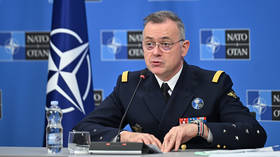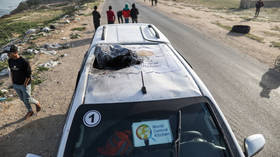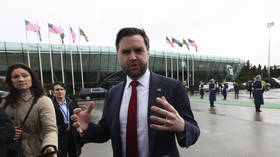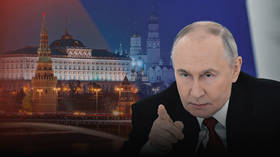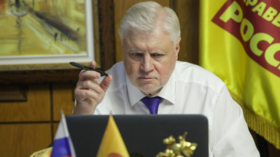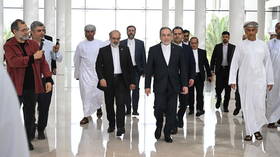Peace in Syria? Only if the arsonists become fire-fighters

The prospects of a peaceful solution to the Syrian crisis is still a long way off. We won’t get an end to the violence until the foreign powers who have been fuelling the conflict, the US included, radically change their policies towards the country.
RT reports that following the visit of US Secretary of State John Kerry to Moscow this week, the US and Russia have "reiterated their commitment to bringing the sides of the Syrian conflict to the negotiating table, and that they have announced an international conference to be called by the end of May which will serve as a follow-up to the Geneva communiqué. The Geneva communiqué should be a roadmap to a new Syria, not a forgotten piece of paper, Russian Foreign Minister Sergey Lavrov and US Secretary of State John Kerry told reporters after theirTuesday Moscow meeting."
So is it time to toast the imminent end of a terrible, bloody conflict which, according to a UN estimate in February, has cost, up to then, around 70,000 lives?
As Sergey Lavrov pointed out on Wednesday, the Syrian government has for a long time shown a willingness to talk, but their readiness to make compromises to find a peaceful, political solution to the conflict has not been matched by the so-called ‘rebels’. Instead of using their influence to pressurize anti-government militia to lay down their arms and to negotiate directly with Damascus, the foreign supporters of the rebels have been egging them on to intensify their campaign to violently overthrow the Syrian government. It’s a campaign which has involved some appalling acts of terrorism, such as last week’s bombing of a main square in Damascus in which at least 13 people were killed.
These countries stoking the conflict in Syria have, up to now, not been interested in compromises, or in allowing the Syrian people to decide their own future, as the new 2012 Constitution allows them to do, but have been hell-bent on achieving ‘regime change’ for geo-strategic reasons- most importantly to ‘knock out‘ the strongest regional ally of Iran.

Despite John Kerry’s support for an international conference, he
has still to rule out direct US military aid to the rebels. When
asked about the bill recommending the direct arming of the rebels
which is before Congress, Kerry said that the future of the bill
would depend “to some degree on the state of the evidence in
respect to chemical weapons”. Yet only a few days ago, Carla
Del Ponte of the UN Commission of Inquiry said that there was
"no, no indication at all" that the Syrian government had
used chemical weapons, on the contrary she said there were
“strong, concrete suspicions” that the opponents of the
government themselves had used them.
If the US stance still leaves a lot to be desired, the position
of the UK in relation to Syria is arguably even worse. The UK’s
neo-conservative dominated government is trying all it can to
pressurize other EU countries to lift the Syrian arms embargo.
Today we hear that they have sent a ‘discussion paper’ to
other EU members making the case either for a total lifting of
the ban or an easing of it.
But the UK government's line is deceitful. They claim they want to help the ’good’ i.e. non radical Islamist rebels, yet a report in the New York Times claimed that “nowhere in rebel-controlled Syria is there a secular fighting force to speak of.” We’ve already had the al-Nusra front, one of the largest groups which make up the ‘rebels’ openly pledging their allegiance to al-Qaeda but that still isn‘t enough to change the UK’s policy. The double standards are breathtaking: the UK government which gave support to the French military action against al- Qaeda linked radical Islamists fighting the authorities in Mali, is spending British taxpayers’ money on helping an uprising dominated by radical Islamists to topple a secular government in Syria.

Peace will only come to Syria when the foreign countries currently menacing it start acting as fire-fighters and not arsonists. That means telling the rebels that its time to end their campaign of violence and to negotiate directly with Damascus. It also means accepting that whether or not President Assad and the Ba'ath Party continue to rule Syria, is up to the Syrian people alone, and not the US, Turkey, Qatar, Britain, France, Saudi Arabia, Jordan, Israel or indeed anyone else.
The trouble is that the countries concerned have invested so much
time and money into trying to topple Bashar al-Assad that it’s
highly unlikely that they’ll change direction now, even though
continuing with their destructive, destabilizing policies towards
Syria only means that the bloodshed will continue.
The statements, views and opinions expressed in this column are solely those of the author and do not necessarily represent those of RT.
The statements, views and opinions expressed in this column are solely those of the author and do not necessarily represent those of RT.



